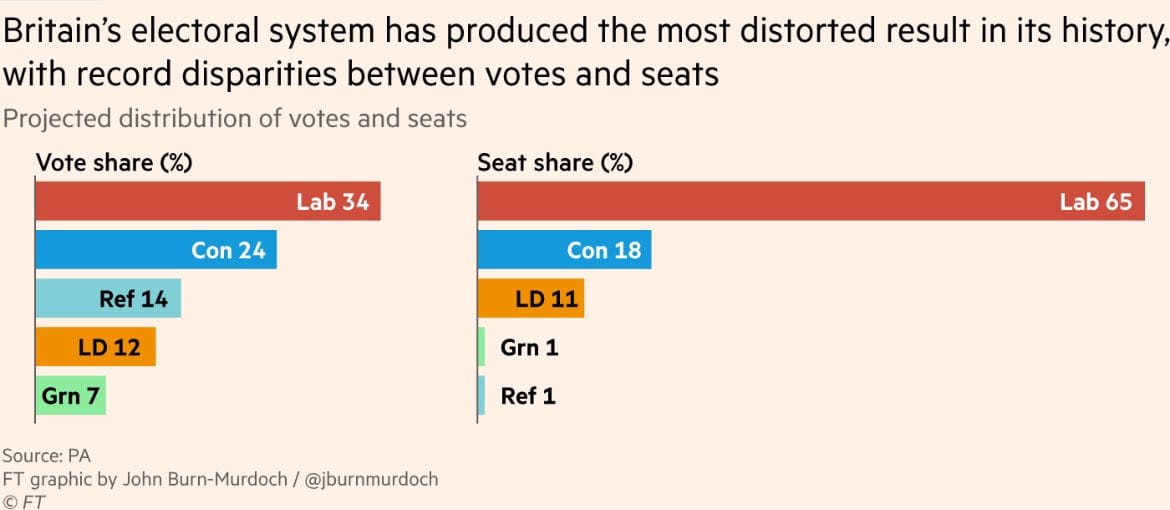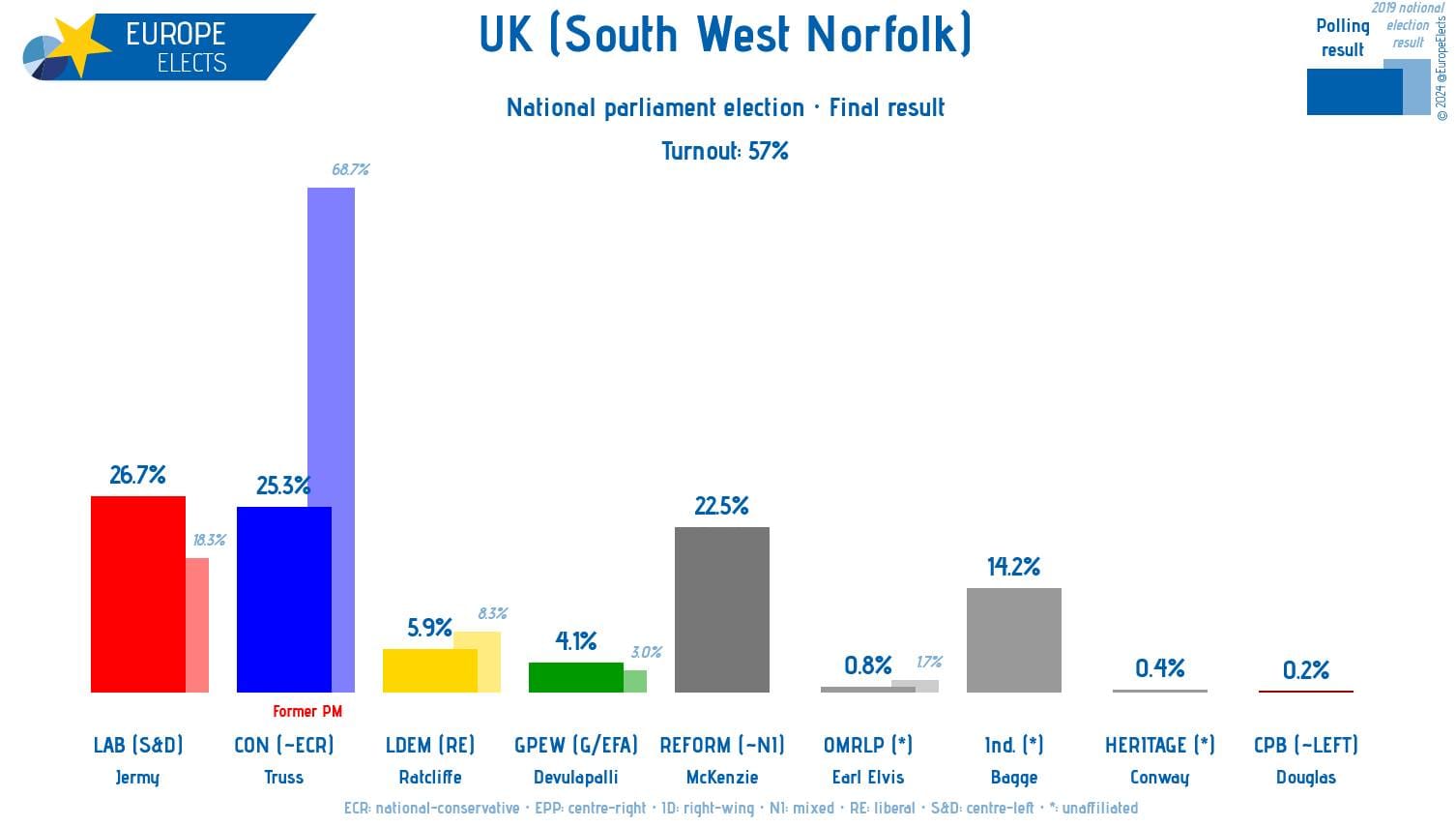Vote share vs seat share in the UK's general election

The 2024 UK's general election gave a large victory to the Labour Party, which saw its share of seats in Parliament increase from 202 to 411. The media called it "landslide victory" for Labour, and a "drubbing" for the Conservatives, and they are right, the Labour Party received more than double the seats won by the Conservative Party.
What was interesting to see was the share of the vote that all the parties received in the election vs the share of the seats that they actually received in Parliament.

The Labour Party experienced a large shift in parliamentary representation between 2019 and 2024, despite only a modest increase in popular vote. In 2019, Labour secured 32% of the votes, translating to 202 seats, or 31% of Parliament seats. Fast forward to 2024, and the party saw its vote share increase by just 2 percentage points to 34%. However, this small uptick in votes led to a disproportionate surge in seats, with Labour claiming 411 seats, equivalent to 65% of Parliament.
Other, minor, political parties, Reform, for example, who received 14% of the votes cast, ended up with 1% of the seat share, just 5 Members, while the Liberal Democrats, who received 2% less votes than Reform, actually ended up with 11% of the seats in Parliament, or 72 deputies.
Many have argued how fair and well-represented are the people of Britain in Parliament, but this is, of course, the First-part-the-post (FPTP) voting system at play. In FPTP, the candidate elected is the one who received the majority of the votes, no matter the performance of the opponent(s). Take a look at the example below:

In South West Norfolk, former Prime Minister and Conservative leader Liz Truss lost her seat to the Labour candidate by a narrow margin of 1.4%. Many voters who previously supported Truss appeared to switch their allegiance to the Reform candidate, while an independent candidate secured 14.2% of the vote. Under the FPTP voting system, the thousands of votes cast for Truss, McKenzie, Bagge, and other smaller parties ultimately had no impact on the final outcome. The Labour candidate, having received the most votes, won the seat in Parliament.
